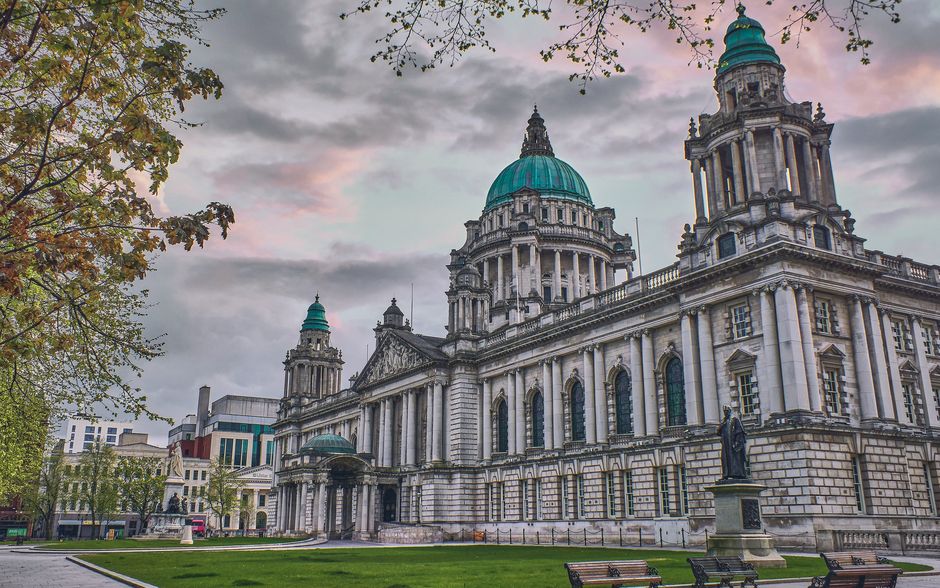Northern Ireland passes a non-binding motion to ban conversion therapy
“We support the ending of abusive practices, while ensuring people are free to seek prayer and pastoral support to live out their beliefs”, Northern Ireland evangelicals say.
EAUK, Premier Christian News · BELFAST · 23 APRIL 2021 · 15:48 CET

The Northern Ireland Assembly passed a motion on Tuesday by 59 votes to 24, calling for a ban on gay conversion therapy “in all its forms”.
This is the first time the Assembly has ever formally debated this issue. The non-binding motion stated that it is “fundamentally wrong to view the LGBTQ community as requiring a fix or cure”.
The Democratic Unionist Party (DUP) presented an amendment which supported the ban but urged “to include protections for legitimate religious activities such as preaching, prayer and pastoral support”, stressing that those “do not constitute conversion therapy”.
The DUP amendment was defeated 59 votes to 28, and some members of the Assembly criticised them for “removing the line from the original motion”.
EAUK: “Support the ending of abusive practices, while protecting religious liberty”
Peter Lynas, director of the UK Evangelical Alliance (EAUK), pointed out in a twitter video that “there is much to support in the motion, in terms of the abusive and harmful practices that have been done in the name of conversion therapy, those should be banned”.
He said that Christians “need to recognise the role of the church historically in this, when it has perpetuated discrimination, and apologised for that”.
As conversion therapy is debated in the NI assembly today we want to be clear in our support for ending harmful and abusive practices whilst ensuring people are free to seek prayer and pastoral support to live out their beliefs. Legislation can, and should, do both. pic.twitter.com/ibPOjkJH5W
— ?ンモᆴ?ンモᆴ? ?ンヤツ?ンモᆰ? (@peterlynas) April 20, 2021
However, Lynas also called on for “a clear definition of what conversion therapy is, to make sure that those who want to, are free to pursue support, to help them live in accordance with their beliefs. That includes prayer and pastoral support”.
“We support the ending of abusive practices, while protecting the freedom of choice of individuals and the religious liberty of churches. Legislation can and should do both”, concluded the EAUK director.
The Presbyterian Moderator, David Bruce, also issued an statement after the debate, pointing out that “where protection from coercive interventions and ‘therapies’ is needed, clarity and balance are also required”.
“For those Christians who ask their minister, or youth leader, to walk alongside them pastorally and prayerfully as they talk about this area of their lives, any future legislation should not criminalise either for fulfilling their pastoral duties responsibly”, the Presbyterian leader said.
Freedoms at risk
Last March, the UK Prime Minister Boris Johnson said that his government would be bringing plans forward to ban the therapy “shortly”, after the resignation of three advisers who had quit over claims the government was a “hostile environment” for LGBT people.
Right after that, Lynas wrote a letter to Johnson, where he already denounced that “the government has committed to end conversion therapy but has failed to offer a definition of it or set out clearly what is meant by this commitment”, so that, until that moment, “the EAUK had not engaged publicly in this debate”.
However, “recent high-profile campaigns and debates, including in parliament, have made it clear that many are seeking an expansive definition that would be highly problematic and which we could not support”, added Lynas.
The EAUK director warned that all that “could have the consequence of restricting individual freedom and impinging on essential religious liberty, potentially criminalising Christians and common church activities”.
“An expansive definition of conversion therapy, and a ban along such lines, would place church leaders at risk of prosecution when they preach on biblical texts relating to marriage and sexuality”, underlined Lynas.
Furthermore, “it would place ministry leaders at risk of arrest for encouraging young people to maintain chastity until marriage. And it would criminalise a member of a church who prays with another member when they ask for prayer as they are attracted to someone of the same sex but do not wish to act on it”.
Boris Johnson: “I do not want to see clergy and church members criminalised”
Boris Johnson answered Lynas in a letter, pointing out that he “absolutely wants to end the scourge of gay conversion therapy which has no place in our society”, and the government “will shortly bring forward proposals detailing exactly how we will do it”.
However, he also stressed that “I take freedom of speech and freedom of religion very seriously, and we will continue to allow adults to receive appropriate pastoral support (including prayer), in churches and other religious settings, in the exploration of their sexual orientation or gender identity”.
“Like you, I do not want to see clergy and church members criminalised for normal non-coercive activity”, added the Prime Minister, who ended the letter thanking “your member churches, for all that they have contributed to our country during the pandemic, in so many ways”.
Published in: Evangelical Focus - europe - Northern Ireland passes a non-binding motion to ban conversion therapy
